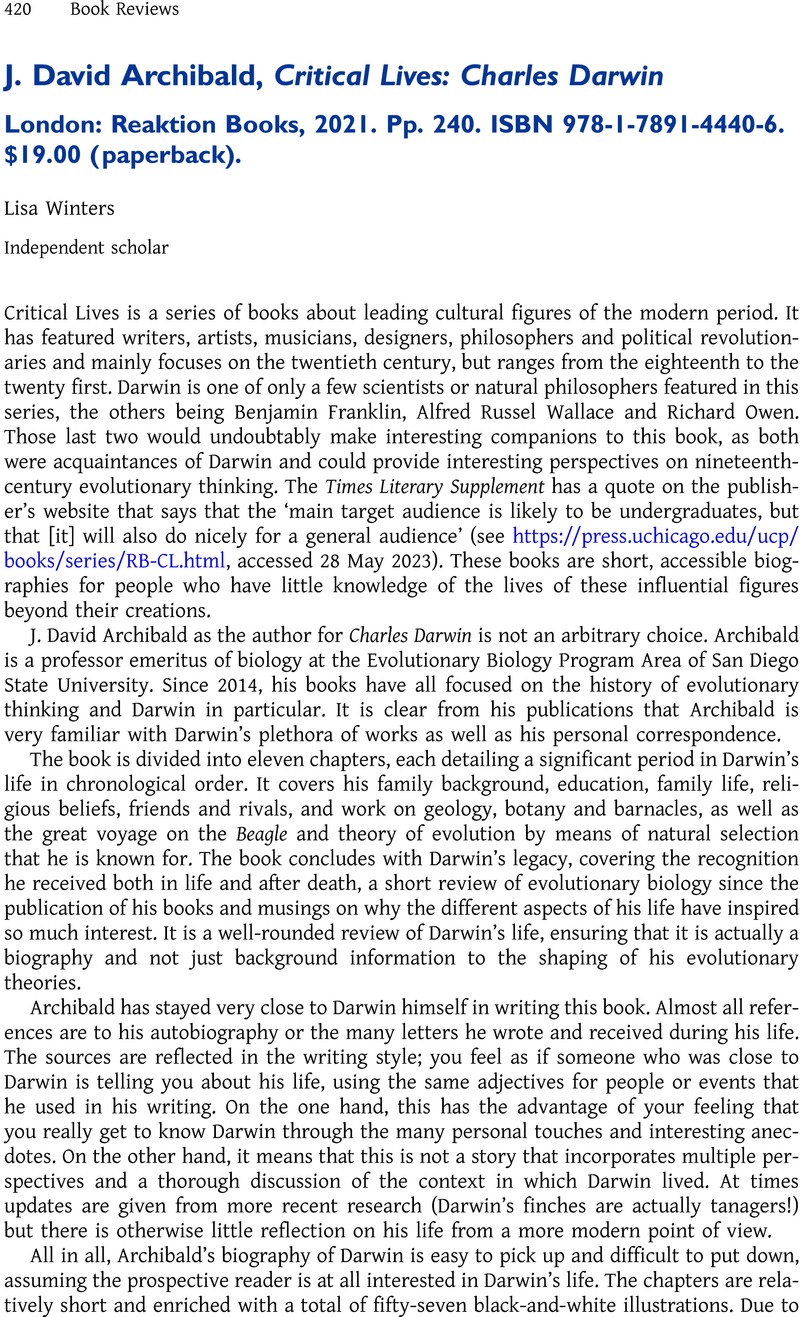No CrossRef data available.
Article contents
J. David Archibald, Critical Lives: Charles Darwin London: Reaktion Books, 2021. Pp. 240. ISBN 978-1-7891-4440-6. $19.00 (paperback).
Review products
J. David Archibald, Critical Lives: Charles Darwin London: Reaktion Books, 2021. Pp. 240. ISBN 978-1-7891-4440-6. $19.00 (paperback).
Published online by Cambridge University Press: 31 August 2023
Abstract
An abstract is not available for this content so a preview has been provided. Please use the Get access link above for information on how to access this content.

- Type
- Book Review
- Information
- The British Journal for the History of Science , Volume 56 , Issue 3 , September 2023 , pp. 420 - 421
- Copyright
- Copyright © The Author(s), 2023. Published by Cambridge University Press on behalf of British Society for the History of Science



